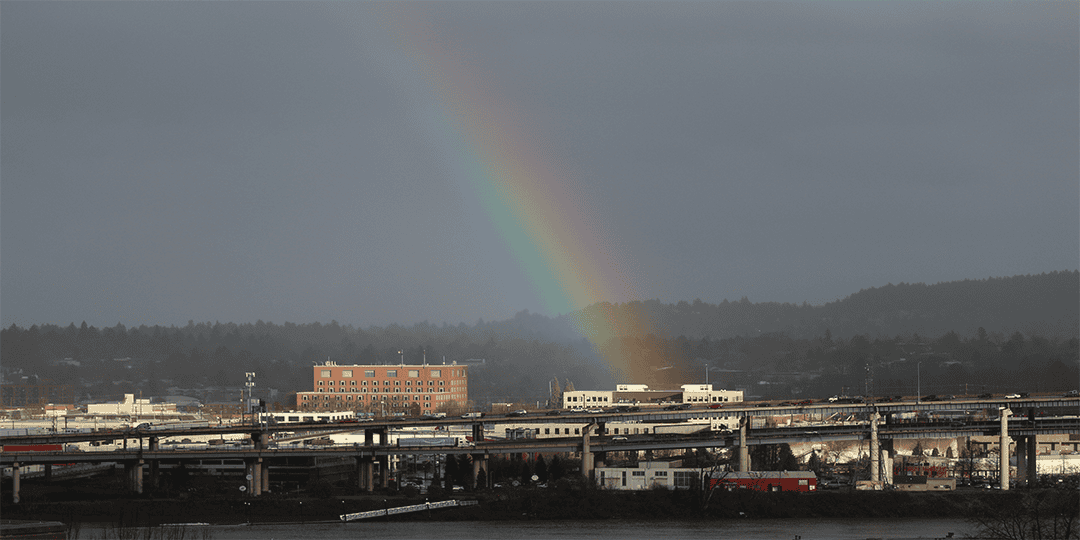Oregonians have installed enough solar to power almost 170,000 homes. As homeowners wipe out their power bills and gain energy independence, you might wonder how well solar panels handle Oregon weather, especially in the western state where rainy weather is the norm. That question makes sense. Solar is often associated with sunny states like Arizona, but that doesn’t mean solar only works in states with the near-constant sun.
With solar being more efficient than ever before, and with access to policies like net metering in Oregon, homeowners can invest in owning solar panels despite rainy weather conditions.
Are Solar Panels Worth It in Oregon?
If you’re a homeowner in Oregon, odds are that solar panels are worth the investment. Solar installations will shave a lot of money off of your month-to-month energy costs, and while it’s true that you’ll be paying for the system, solar incentives and federal tax credit programs can significantly reduce the cost of purchasing a solar panel system. By harnessing those rebate programs, you can effectively shave 30% off the total cost of your solar installation.
A solar expert will be able to give you a complete rundown on a system that will fit your exact needs, which will inform the direction that your solar project needs to go. Solar panel installers will also help you understand tax credits, incentive programs, and some of the benefits of energy independence. Remember that solar tax credits are subject to change, but they’re a significant factor in making solar panels worth the cost in Oregon.
How Much Do Solar Panels Cost in Oregon?
The cost of solar panels in Oregon can vary depending on the size and type of system you’re installing, but the average cost for a home solar panel system is around $10,000 – $30,000. However, after factoring in state and federal tax credits, incentives, and other energy savings programs available in Oregon, the actual cost of solar systems will be a decent bit lower. You don’t have to pay the total installation cost upfront, either. Many companies will offer special financing terms for solar loans that limit out-of-pocket expenses. In some cases, you can even go solar for $0 down.
Solar in Oregon’s Climate
To understand why solar is an excellent investment in Oregon, we need to know how the most common type of panels used for home solar, photovoltaics, convert sunlight to energy.
While many people assume solar panels need warm weather to work, photovoltaic solar panels need light from the sun to turn light into energy because the panels convert sunlight into electricity by reacting to UV light. You might jump to bright, sunny days as the best times for solar energy production, but solar works best in temperatures under 80 degrees. A temperate sunny spring in Oregon could see better energy production than a blazing hot and constantly sun-filled summer in Florida.
Do Solar Panels Work in the Rain?
Yes, solar panels work in the rain. While solar produces energy most efficiently with direct sunlight, photovoltaic panels are efficient enough to produce much energy even during overcast weather. Plus, a clean panel produces better than one with dust or debris. Rainy weather can help keep your panels clean, which in turn can yield better energy production overall.
Does Solar Work At Night?
Solar panels don’t work at night — at least not yet. You’ll pull electricity from the grid when your panels aren’t producing. That’s where net metering helps homeowners who go solar continue to save and power their homes, even during stormy weather and at night. So, how can solar power your home year-round during rainy weather and long winter nights?
When homeowners in Oregon get solar installed at home, the power company is legally required to install a second meter in addition to all grid-connected homes’ regular meters. That new meter is your net meter. While all homes connected to the grid have a meter tracking any electricity flowing into your home from the grid, homes with solar have a net meter that tracks the electricity you send back to the grid.
In Oregon, power companies must compensate homeowners for every kilowatt of electricity they produce. That compensation appears as a credit on your account with the power company maintaining the grid in your area. You can use that credit to cover any electricity you need to pull from the grid at night, during a winter storm, or if you use more electricity than usual in one month. With an average of 156 days of sun in Oregon, your solar can still help you wipe out your power bill, even when your panels can’t generate electricity.
Ash, Hail, and Solar Panels
Solar panels can withstand rain, but what about hail, freezing weather, and even ash from a summer wildfire? The last few years have been full of environmental challenges, so you must be confident that your solar power system will hold up against unexpected hazards.
Don’t worry: Solar panels are manufactured to a standard that can withstand hail falling at up to 50 miles per hour, 112 pounds per square foot of snow, winds up to 140mph, and temperatures down to -40º. Solar power systems require occasional maintenance, but you don’t have to worry about inclement weather impacting your energy production.
As for ash from wildfires, while the panels will still receive enough UV light through smoke and smog to work, if you’re concerned about ash collecting on your panels, all you need to do is grab your garden hose and a spray nozzle and give them a quick rinse.
Solar installers can explain the exact specifications of solar energy systems and how they hold up to weather. If you have any specific concerns about the weather in your area and how it could impact your home, be sure to raise them during the consultation.
Suppose you’re interested in going solar but want additional protection for your investment. In that case, Purelight’s trio of warranties and guarantees can help you to feel confident that your system is well-protected. As one of Oregon’s leading solar companies, we’re equipped to help you with all your solar needs, answering all your questions from the consultation to the final installation. Take our 30-second survey to check if your roof qualifies for our $0 out-of-pocket solar.




